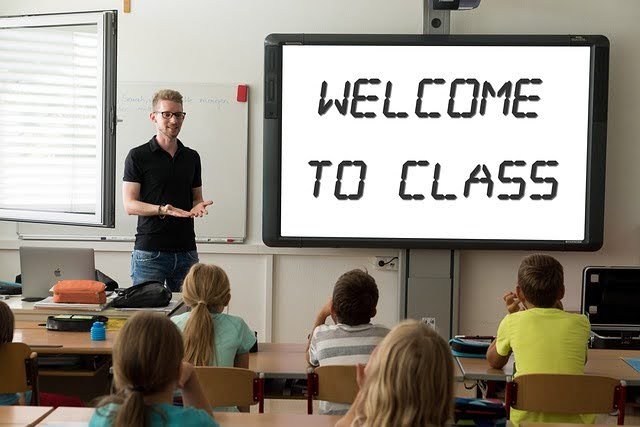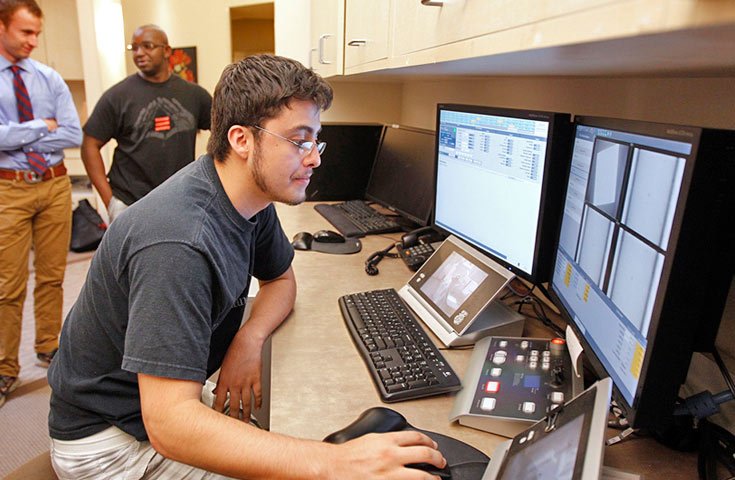Let’s say you’ve just graduated from college and you’re ready for an adventure. You hear about an opportunity to teach English in South Korea, a country known for its delicious food, colorful culture, and cutting-edge technology. Sounds exciting, right? But then you start to wonder: Do I need to know Korean to teach English there?
Teaching English in Korea has become incredibly popular among native English speakers. Many people are drawn to the chance to experience a new culture, make new friends, and even save money. Schools in Korea, from public schools to private academies are always looking for enthusiastic teachers.
So, the big question is: Do you need to speak Korean to teach English in Korea? In this article, we will explore that question and help you understand what it’s really like to teach English in a country where you might not know the language.
The Teaching Environment in Korea
Teaching English in Korea can be an exciting adventure. There are several types of jobs you can find there. Each type of job offers a different experience and has its own unique environment.
Public Schools
These are the regular schools that Korean children attend from elementary through high school. If you teach in a public school, you’ll have a structured schedule and work alongside Korean teachers.
You’ll often teach large classes and follow a set curriculum, which means you’ll know exactly what to teach and when. Public school jobs usually offer good benefits, like paid vacations and housing allowances.
Private Schools
Private language institutes are very common in Korea. These schools focus specifically on teaching English and often have classes in the afternoons and evenings after regular school hours.
The classes are usually smaller, and the students range from young children to adults. Working at a private school can be more flexible but might also include longer hours.
Universities
Teaching English at a university in Korea is a prestigious job. University positions often require more experience and higher qualifications. If you get a job at a university, you might teach large classes and have more freedom to design your lessons.
University jobs also typically offer more vacation time and a lighter teaching load compared to public and private schools.
Online Platforms
With the rise of technology, many people now learn English online. 화상 영어 (Online English Classes) are conducted over video calls, allowing you to teach students from the comfort of your own home or anywhere with a good internet connection.
These are the main types of teaching jobs you can find in Korea. Each one offers a unique way to experience Korean culture while helping students learn English.
General Requirements for English Teachers in Korea
To teach English in Korea, you’ll need to meet a few key requirements. These ensure that you are well-prepared to help students learn effectively.
Educational Background
Most teaching jobs in Korea require you to have at least a bachelor’s degree. It doesn’t always have to be in education; degrees in any subject are often accepted. This shows that you have completed a higher level of education and are capable of teaching others.
Teaching Certifications (TEFL, TESOL)
Having a teaching certification can make you a more attractive candidate. Two common certifications are:
- TEFL (Teaching English as a Foreign Language)
- TESOL (Teaching English to Speakers of Other Languages)
These certifications involve special training that teaches you how to effectively teach English to non-native speakers. Some schools may require you to have one of these certifications, while others simply prefer it.
Native English Proficiency
Schools in Korea usually look for teachers who are native English speakers or have native-like proficiency. This means you speak English fluently and can model proper pronunciation, grammar, and usage for your students.
Being a native speaker from countries like the United States, Canada, the United Kingdom, Australia, New Zealand, Ireland, or South Africa is often a big plus.
These requirements help ensure that you’re ready to take on the important role of teaching English to students in Korea.
Not Knowing Korean Can Sometimes Be A Challenge!
Teaching English in Korea can be fun and rewarding, but not knowing Korean can sometimes be a challenge.
Here’s how it can affect your teaching:
Teaching Younger Students
Younger kids, especially those in elementary school, may know very little English. This means you’ll need to use lots of pictures, gestures, and simple words to help them understand. Imagine trying to explain a game without speaking their language—it can be tricky but also a great way to get creative!
Teaching Adults
Teaching adults can be different because they might already know some English. However, they might be shy or nervous about speaking. You’ll need to encourage them and be patient when they struggle with words. Adults often appreciate when you can explain difficult concepts in simple English.
Outside the Classroom
Living in Korea without knowing Korean can also be an adventure. Here’s what to expect:
Doing everyday things like grocery shopping, ordering food, or asking for directions can be a bit challenging if you don’t speak Korean. You might have to use translation apps on your phone to communicate.
For example, if you’re at a store and can’t find something, you can type the word into your phone and show the translation to the shopkeeper.
Making friends and socializing can also be a bit harder without knowing Korean. You might find yourself using a lot of hand gestures or trying to remember basic Korean phrases. Sometimes, you’ll meet people who want to practice their English with you, which can be a great way to make friends.
Joining expat groups or language exchange meetups can also help you find people who understand what it’s like to live in a new country.
Advantages of Knowing Korean
Now, what if you know Korean? Here’s how you can benefit from it:
Improved Communication with Students
Knowing basic Korean can make a big difference when you’re teaching. For example, if a student doesn’t understand a word in English, you can explain it in Korean.
This helps students learn faster and makes your classroom run more smoothly. It’s like having a secret code that helps everyone understand each other better.
Enhanced Cultural Understanding
Learning Korean can also help you understand the culture better. When you know the language, you can watch Korean TV shows, read Korean books, and talk to people about their traditions.
This helps you appreciate the culture more deeply and shows respect for the country you’re living in. Imagine being able to join in on local festivals and understand the stories behind them!
Building Relationships
Speaking Korean can help you build stronger relationships with your colleagues and locals. For instance, if you can greet your co-workers in Korean and chat with them, they’ll feel more connected to you.
It shows that you’re making an effort to be part of the community. You might even make friends more easily because people appreciate it when you try to speak their language.
Alternatives to Knowing Korean
If you don’t know Korean at all, here are some useful alternative ways for you:
Translation Apps and Tools
If you don’t know Korean, don’t worry! There are plenty of translation apps that can help you communicate. Popular ones like Google Translate or Papago can translate words, sentences, or even whole conversations.
You can use these apps to read signs, order food, or ask for directions. It’s like having a mini translator in your pocket!
Learning Basic Korean Phrases
Learning a few basic Korean phrases can also be very helpful. Here are some essential phrases for new teachers:
- Hello: 안녕하세요 (Annyeonghaseyo)
- Thank you: 감사합니다 (Gamsahamnida)
- Excuse me: 실례합니다 (Sillyehamnida)
- How much is this?: 이것 얼마예요? (Igeot eolmayeyo?)
- Where is the bathroom?: 화장실 어디예요? (Hwajangsil eodiyeyo?)
- I don’t understand: 이해하지 못해요 (Ihaehaji motaeyo)
Using these phrases can make daily interactions much easier and show that you’re making an effort to learn the language.
Utilizing Support Networks
Being part of an expat community or having Korean friends can be a big help. Expat communities are groups of people from other countries who live in Korea. They can share tips, offer support, and help you navigate life in a new place.
Korean friends can also assist you with language and cultural questions. It’s like having a team to help you out!
Online English Teaching
If you’re teaching English online, you might not need to know much Korean. These classes are usually conducted entirely in English. Students often understand that the focus is on improving their English skills. This means you can concentrate on teaching without worrying too much about language barriers.
If you’re looking for more flexibility or the chance to teach students from anywhere in the world, you can consider online 영어 학원 (English Language Academy) like AmazingTalker.
Using these alternatives can make living and teaching in Korea easier and more enjoyable, even if you don’t know much Korean.
Final Thoughts
Whether you know Korean or not, teaching English in Korea can be an amazing adventure. If you already know some Korean or are eager to learn, it can make your experience smoother and help you connect more deeply with your students and colleagues.
On the other hand, many teachers have thrived without knowing much Korean, relying on creativity, support networks, and translation tools. It’s important to think about what works best for you and what you’re comfortable with.
No matter where you are with your Korean language skills, don’t let it stop you from pursuing your dream of teaching in Korea.





